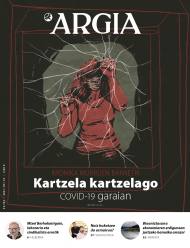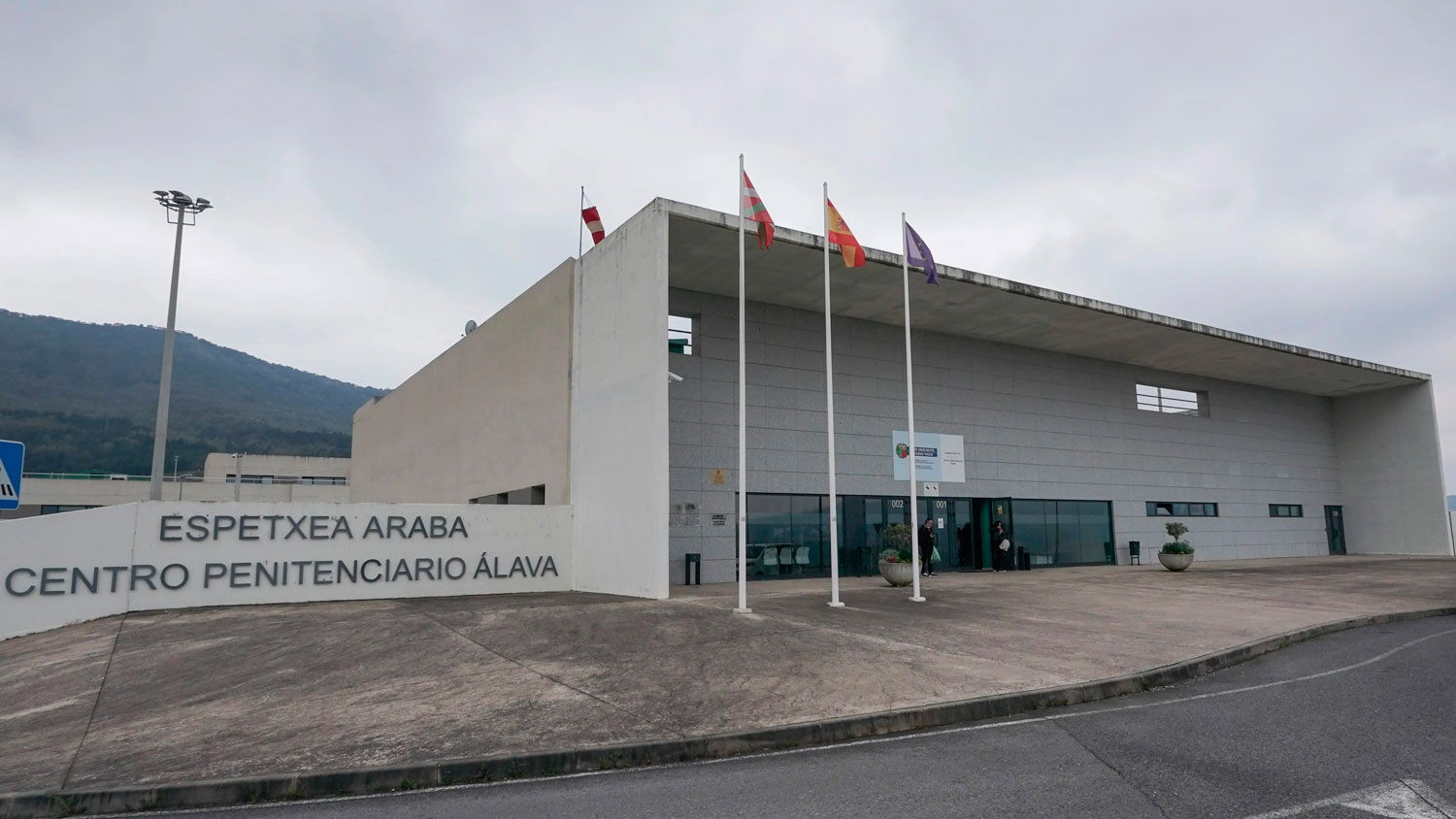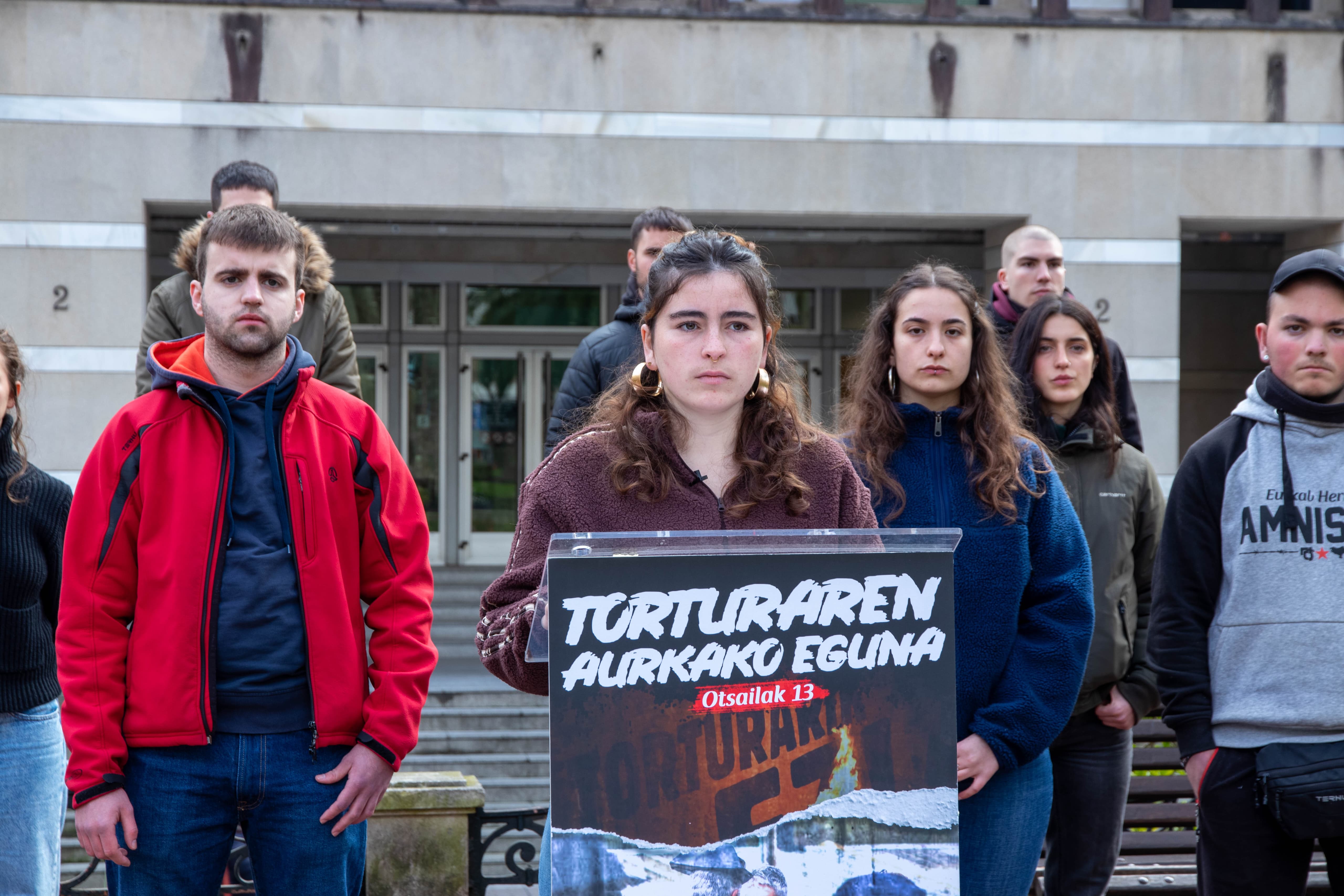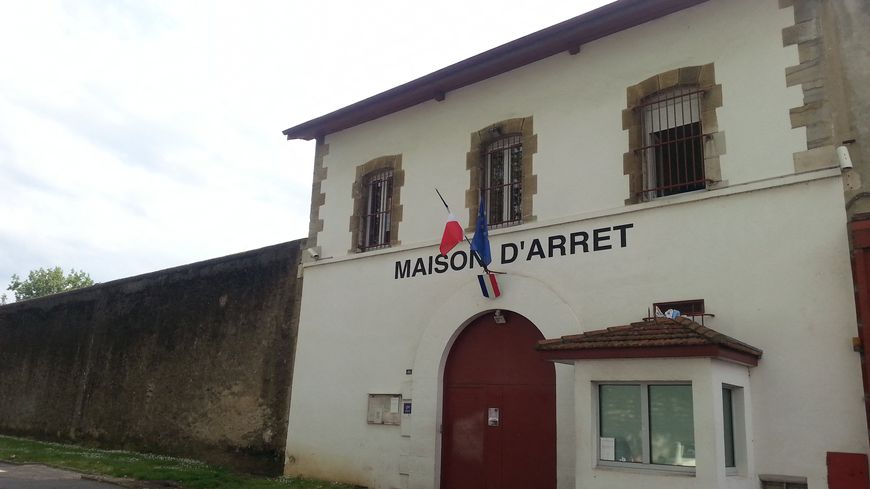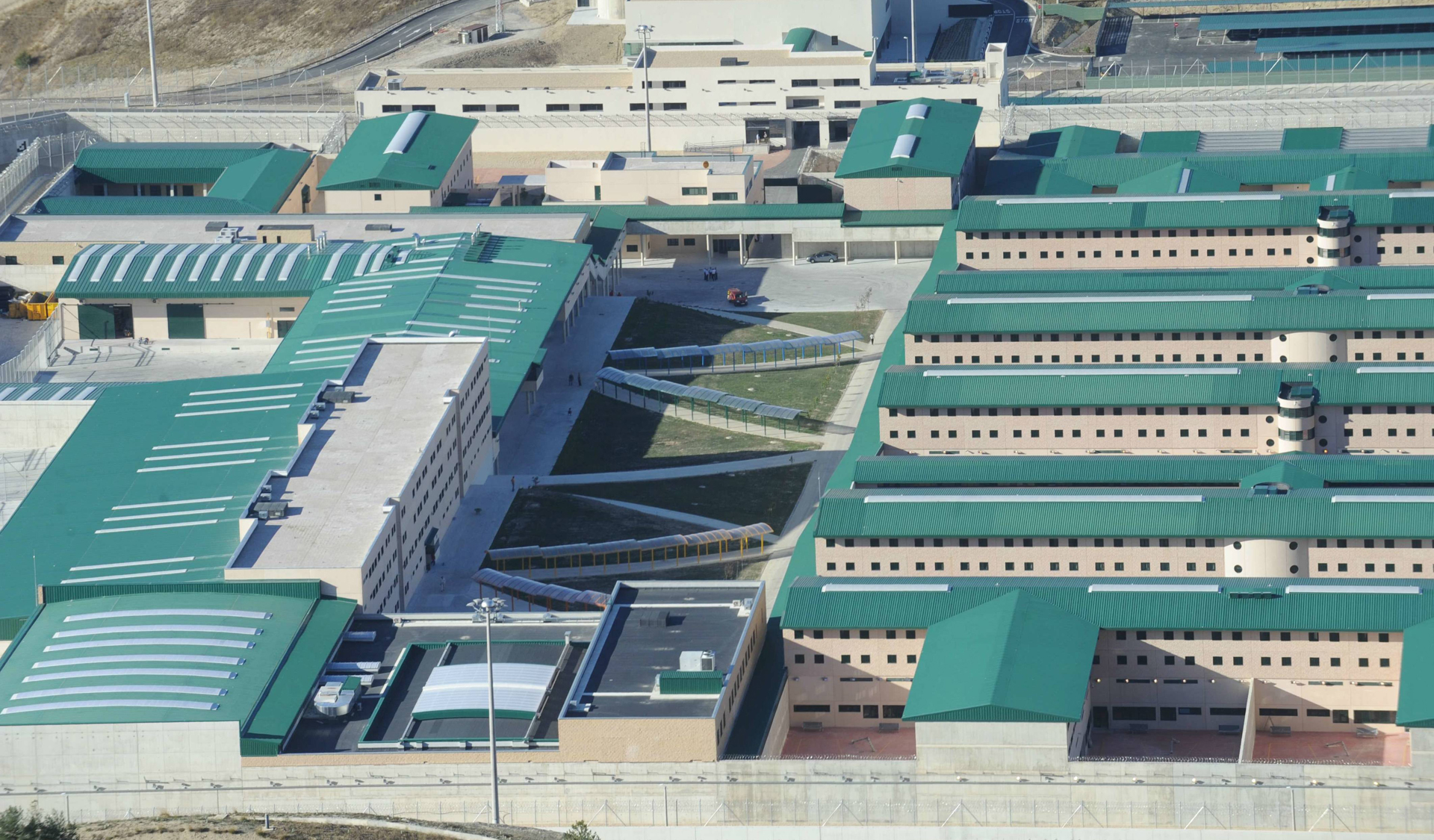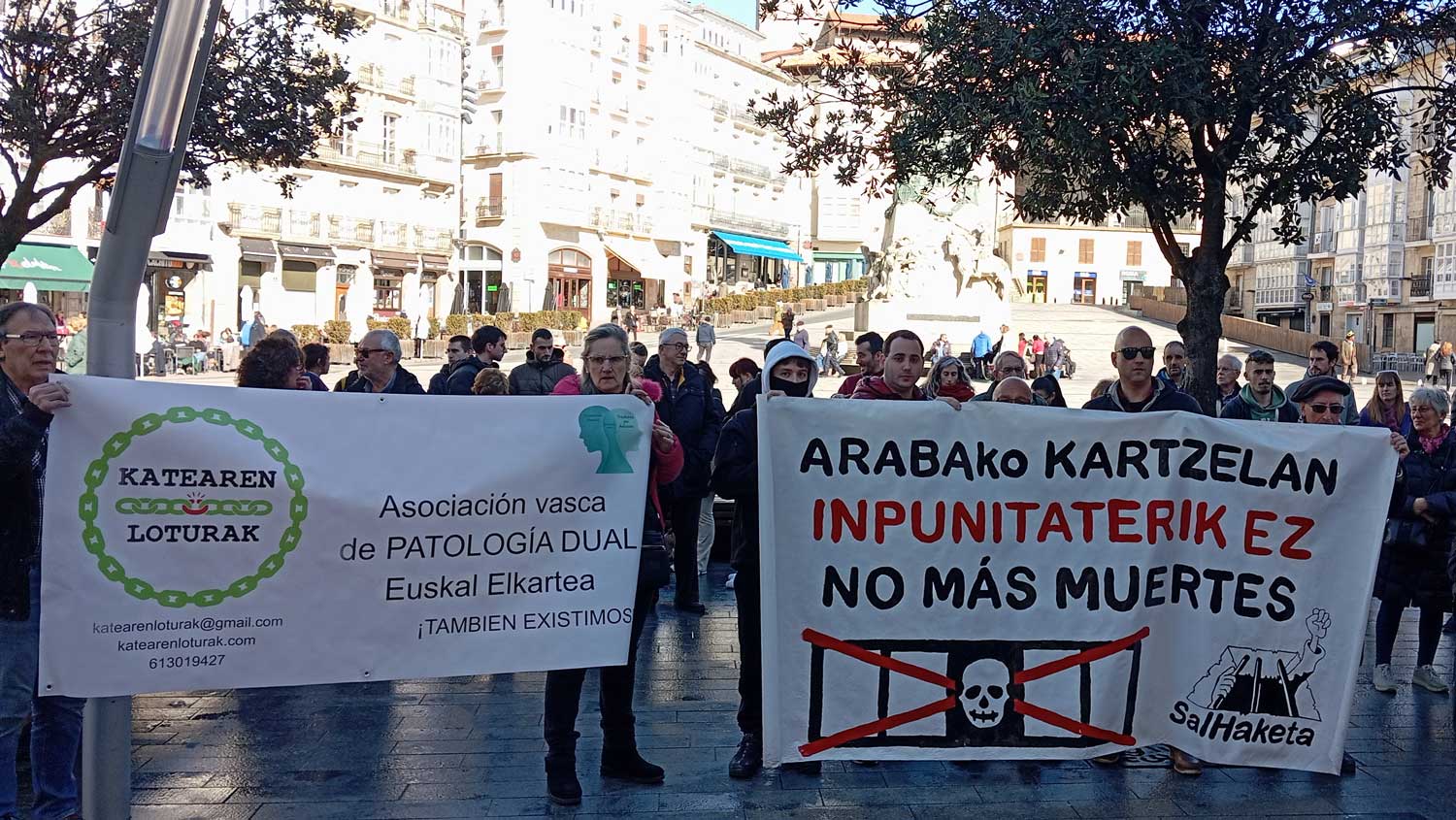A year without hugs for the prisoners in Rennes
- Women in prison in Rennes (Brittany, French State) are divided into several divisions. There are 20 cells in each division. These days, in our division A3, we are eighteen women: eighteen ages, eighteen origins, eighteen colors, religion and way of understanding life; different, but united in this galére, among these walls in captivity, in the routine coexistence, in an unusual pandemic and dystopic time.
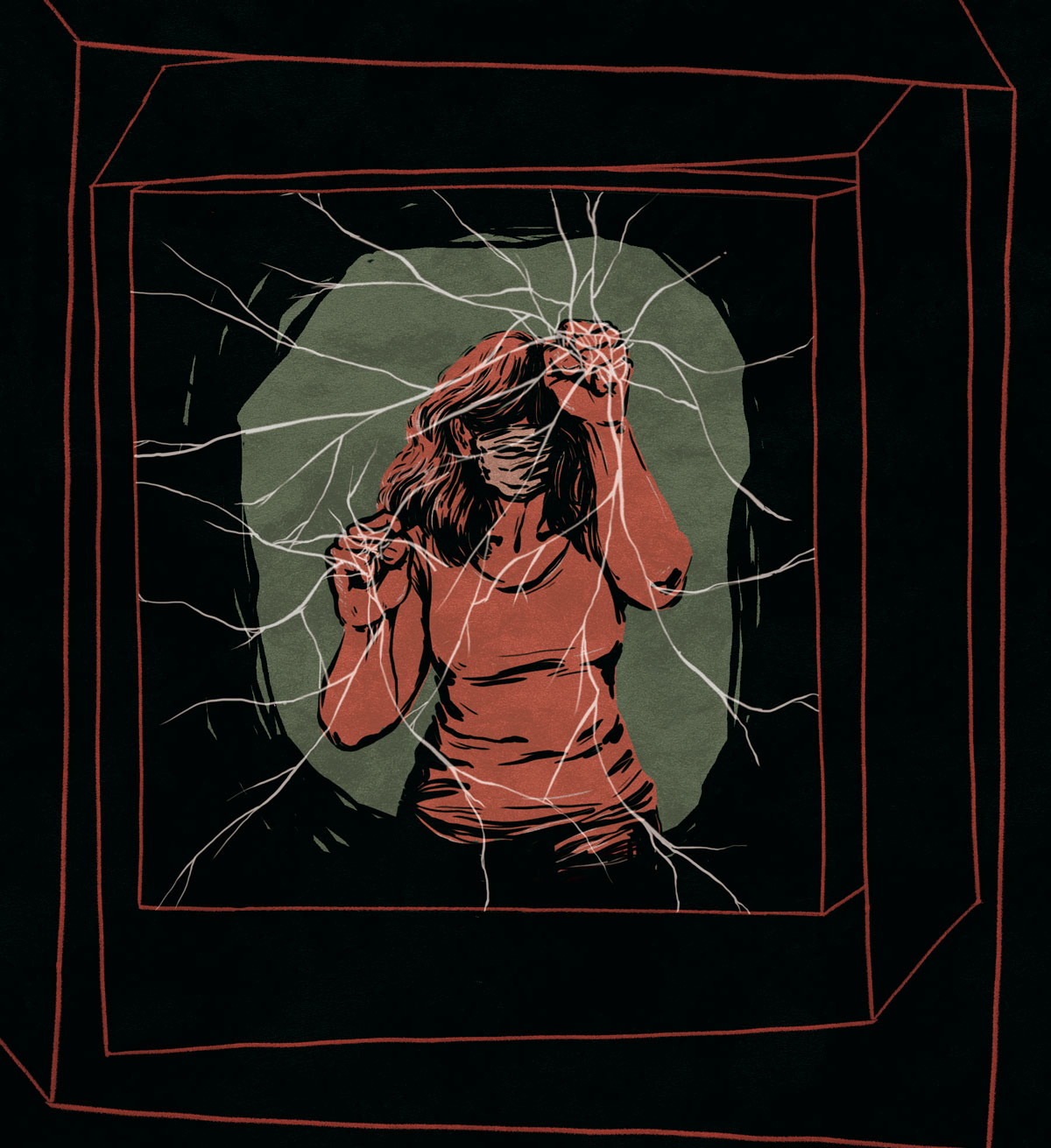
Sonia, which is not its real name, is a real fact, unfortunately, one of the eighteen has been hanged today. Surrounding her neck with an elongating cable, she hangs from her life when death comes. Another of the eighteen has opened its cell door and thanks to it, in this macabre scale, life has gained today. This is not always the case, among other things, because prison and prison doctors take too long to reach the prison floor and to serve the inmate.
What has prompted Sonia to make this extreme decision? In the unrest of the situation I have noticed that I have hardly talked to Sonia. I know that he is too far from home and that he has his sick mother, but as he has recently come to our division, we have only exchanged a few polytesse phrases. That, of course, has given me what to think. We listen, we understand, we take care of ourselves and help ourselves, today and here, more than ever, we have essential tools to survive!
Voices of the Last Links
They ask me how we have lived the pandemic in jail. Although without a pandemic, we prisoners are the last link in society, or one of the last, unfortunately, is always worse: the victims of the system and/or their detractors, forgotten by society itself. Of course, in this time of emergency. It is clear, by fungi, that prisoners and prisoners are not among the priorities of governments, because we have found that we are
among the prisas.Han used with us the easiest way to deal with the disease, closing prisons and completely denying the rights that were previously scarce, at the same time as the most interested route. As on the outside, to control and tighten up the population, both the prisoners and us. On the contrary, Basque prisoners, at a time of differentiated repression, fortunately, can enjoy the burden of solidarity of our people. That is why I have decided today to give the floor to the forgotten, to those who have no voice in the news and in the newspapers, to the other prisoners.
"We have seen that prisoners and prisons are not among the priorities of governments, but that we are among the "speeches""
To the women I have crossed these days in the division, in the courtyard… I have asked the following questions: How did you experience this stage of a pandemic in jail? Have you noticed any difference from the previous prison? What are your feelings about the last year? What do you have to say, criticize, denounce, reclaim...?
Isolation added to isolation
Before your answers, here are some clarifications. In French jails, when the pandemic began, we were three months unvisited, four months for relatives who had to cross the border. In addition to the usual travel difficulties, the consequences of the emergency measures are added: return order times, transportation restrictions, economic losses due to layoffs/economic situation, the need to carry out a CPA to cross the border… The fear of infecting your family member or being oneself contaminated is there. The added difficulties are put by the prison itself: the reduction in the number of visits and visitors, the distribution system of the visitation room, the possibility of introducing a single child for a long period of time – even if the mother has more children – or the inability of children to touch/embrace their mothers… All this makes the announcements that before the pandemic were full or almost full (a few dozen in Rennes), almost empty.
Each time we only go to the visiting rooms two or three prisoners and often I go alone... We're almost 200 women in jail! My family and friends have also had difficulty getting to visit on a number of occasions for the reasons stated and, for the first time in these ten years that I have just been in prison, I have spent more than a weekend without visiting. In summer I had the opportunity to do two UVF (long visits to the prisons of the French State), but if I have not been hugging my family and friends for a year: on the one hand, because they have implemented a distribution system in the visiting rooms – unlike Spain, in the French speakers there are no crystals that separate us from the domestic ones – because since the summer we have not recovered these UVF.
.JPG)
Reduction of restricted rights
On the other hand, in the last year we have been slimmed down by the rights that are scarce in prison: working women were three or four months without the possibility of working, with the consequent loss of money: they cannot buy commodities, not send money home, etc. We've been out of business for a whole year except for the summer parentheses. They only allow training (with discontinuities) or work. The school is not, and there is no work for all the prisoners, let alone. We've been severely constrained by the use of sports and library, and we often don't have the ability to go. We have no cultural activity, we have been cut by half the patio times for a year…
We are joined by sanctions on the pretext of the health crisis, such as the setting of a fourteen-day confinement after these isolated UVF or expulsion permits. We comply with the confinement in criminal conditions, alone and without any kind of activity or social relationship. On the contrary, jailers come from the street every day inside the prison and hardly meet the minimum safety standards. They punish us, but they have never tested us, to prevent prolonged isolation or to prove that a virus has been introduced into this prison, although we have repeatedly called for and denounced it.
So, here are some testimonies of women at the Rennes prison:
"Contactless visits are very uncomfortable, I find it really disappointing the lack of contact, not being able to embrace family members"
"I'm afraid that you can't be with those at home, that something happens to you that can't be next to you."
"Here there is nothing to do, no activity or anything; time is slower than normal, it is disappointing"
"Psychologically it affects us a lot, here the feeling of society towards the pandemic abroad is multiplied, the closure becomes unbearable, without activity or visits… Is that the negative side of the pandemic, and positive…? It does not exist.”
"Those fourteen days of confinement get me really hard: I don't work, I don't cross anyone... I'm deeply depressed in the cell. The psychological problems of women prisoners have increased since the pandemic.”
"It's funny to say this, but I feel protected, as we're completely closed, I have a feeling that the virus can't get in. On the contrary, I see too many contradictions: jailers take the mask off when they want, never wear gloves… In the hospital, as COVID-19 prioritizes, they don’t attend enough for the rest of our illnesses”
"For the elderly, the situation is even more complicated"
"I want to scream at society: We already exist! We prisoners are the most forgotten in this pandemic.”
"Since I have no visit for myself, in this sense, the situation has not changed much" [The situation is denounceable: most women never receive visits]
"I want to scream at society: We already exist! We prisoners are the most forgotten in this pandemic.”
"I find it hard to have to wear the mask all day. I know, there are also people who have to take her, but -- couches, when they come home they take it away! We have to dress at all times and if we want to take it away, they punish us. What is a simple fine out there, it means for us to lose the punishment and the days
of freedom” “We are increasingly closed, profiting to curtail our rights. Freedom is lost in prison, now we are also denied our fundamental rights”
"I now have fewer visits than before the pandemic"
"I feel like a oyster, the situation has led me to close it in myself. I don't have any news from my family, I don't want to hear someone in my house get sick. I feel like I've lost my previous illusions. So I defend myself: before I had empathy with everyone, now I close and defend myself”
"It's shameful that after the permits to go abroad they have to spend fourteen days in isolation, even if just a couple of hours out."
"We're more closed than before, I don't want to leave the authorization for the isolation of fourteen days. In addition, I have great concern, I don’t want to bring the disease to my children!”
"I feel distress at all times. For example, when I go out for my cause I don’t touch anything, I use a cloth to take the concerts and open it…”
"Plus, the ones we're going to hear. The people outside tell us: you are used to being closed... Well, no! We are more closed than before, it is not acceptable”
"We also have to suffer the comments of the jailers, as we cannot complain that we have the opportunity to do sport and that they cannot go to the gym outside… We were born to hear! I am not a violent person, but sometimes… I would give them a lot of slap, yes!”
"I'm totally lost without activity, I get really bored."
"We miss the culture!"
"We suffer an additional oppression, we are more closed than before"
"These corrupt have been perfectly profited to squeeze ten times more the screws that press us. I fear that at the end of the pandemic we will not regain our usual rights.”
"This situation has put us in apnea, in the absence of outside wind, has pushed us to insomnia over time, we are in human anemia"
"This situation has shown that people who have difficulty writing and reading, at least harder than before, are more likely to fall into paranoia than before: all day looking at television, constantly looking at programmes that repeat exaggerated dramatic data and, at the same time, with contradictory data, you cannot set personal opinion"
"Women prisoners, as usual, treat us as children, for now… prison has become a total day care center"
"Women prisoners, as usual, treat us as children, for now... prison has become a total day care center"
"It seems to me that meals are scarcer than before, perhaps because they are more careful with expenses… who knows"
"We need more than ever to touch, hug, kiss... but with an artificial life they try to buy us: we get a little money on the phone, which is the third part of the void for those we call abroad, with video calls that give problems every time, offer free television... So they want us: all day watching TV, fool! Television, as always, is the weapon used by jail to reduce or control our scarce freedoms.”
"When we lose our relationship and contact with the human being, we don't even become lifeguards, but... but!"
"The fourteen-day lockdown is totally scandalous: they don't test us and they don't take the temperature -- and that's it!"
"They don't allow us to choose what we risk. Jailers come from outside, take off the mask and touch us… we have to suffer it by chance and we cannot touch our relatives”
"While jailers, directors, etc. buy or use homemade kisses, they prohibit us: when visits started after the confinement we were forbidden to put kisses into the package; then the director allowed us to sew or put fabric kisses into the package; finally, they punish us for dressing us these authorized ones" [We are distributed the jails every day of kisses to swim and punish us if we do not use]
"The sectorization of prisons leaves us with the possibility of relating to more prisoners and prisoners that increase the feeling of loneliness"
"We've had too little backyards, I need to go outside more."
"All these cuts favor the prisoners' puppy: we are more angry, more scared..."
"I want to denounce the attitude of the jails, who in their visits threaten their relatives if, for a moment, they withdraw the kiss, the same if they are adults and children. & '97; They, however, remove their kiss when they want. Eleven meet in their rooms and offices and we are also forbidden from school so that we do not meet five or six... Outrageous!”
"Prisons are said to show the democracy and the level of freedom of a state... With the pandemic we have seen perfectly what the level of democracy of the French State is"
"The Administration does not recognize its inability to guarantee our security"
.JPG)
I share, in general, the testimonies. Although some do not feel exactly the same, I fully understand all these occurrences. I would add one idea on my part. On the one hand, the Basque women prisoners we are in France keep us away and isolated – and it seems that in the medium term there is no sign/will to resolve this situation. Lorentxa, Saioa and I are alone, 800 kilometers from home, and the three members of Paris, united, are 900 kilometers from Euskal Herria. The remoteness and loneliness of me in this prison causes serious losses to my relatives, who have to make a long journey without the help of other relatives. The risk, fatigue and travel expenses are multiplied. Let's not say now that to cross the border you have to pay for expensive PCR tests. Besides petrol, hotel, road tolls, etc., EUR 80 additional per gift person. Of course, the most effective way for our family members to do less miles is for us to be at home, so … imprisoned on the street!
On the other hand, I would say that the lack of contact, the plasticized visits, the artificial means of relationship of new technologies, such as video calls, etc., make me feel stronger than I am in a giant farmer. Without being able to hug you, I feel like this. Like nemo, inside a plastic bubble. Yes, I have realized that the loss of visits and the lack of contacts provoke us more than they expected. The Basques, at least as far as visits are concerned, are some “privileged” in prison, I mean that no one, like us, has a visit every weekend. And, of course, we know what the visits bring us: support at all levels, huge doses of love, immense joy, strength to advance, information, satisfaction of the needs of sweetness and sex, possibility of debate and political action… they bring us the street or, better, they take us out into the street! With the cards, with the calls, with the visits… you are the windows to look out!
"Now that we have fewer opportunities, we are able to multiply the tricks; people, women, prisoners... We always find the way!"
Amatxi, a prey
Turning difficulties into opportunities
This pandemic situation has taught me, especially in these four months of absence of visits, that we prisoners enter us when those windows are closed. Now I realize that I also rolled inside myself… However, as Sarri wrote, “in the worst case, a little freedom is kept in the mind of the individual. (…) When it is not possible to pierce the wall, freedom is not something that would come from the outside, the prisoner seeks inside, inside himself and his friends.” We look for and find that freedom in our friends, in our home and within, of course! This last
idea was beautifully summarized by a 65-year-old prisoner mother in the answer to my questions. I will end with your words, therefore, today’s letter: “I feel like saying something positive: when we have fewer opportunities than before, we are able to multiply the tricks; people, women, prisoners… we always find the way!” Serve this idea to address the crisis of the pandemic. Above and beyond savage capitalism, suffocating human control and accelerating military repression without complexes, difficulties become opportunities: now more than ever, fighting is the way! Take care of yourself and act!
-----
** Article author, Itziar Moreno Martínez (Bilbao)
He was arrested by police in April 2011 following a shooting in Creus (French State) by attempting, together with Vitorian Oier Gómez, to escape control of the Gendarmes Road. In 2016 he was sentenced to 15 years in prison by the Paris courts. During his prison he meets the prisons of Dijon, Seysses, Fresnes, Fleury and Rennes. He will serve his sentence at the end of 2022 or early 2023 in the French State, but the Spanish State has requested a Euroorder against him.

“Saihestu egingo dira giza eskubideen, ordenamendu juridikoaren eta espetxeetako tratamendu psikosozialaren aurkako balioak eta jarrerak babestea, justifikatzea eta goratzea ekar dezaketen adierazpenak”, dio, besteak beste, agiriak. Azaroan Eusko Jaurlaritzako... [+]
34 edo 35 urteko gizonezkoa, gasteiztarra eta alaba baten aita, ostegunetik ostiraleko gauean hil zen, Salhaketak jakinarazi duenez. Elkarteak gogoratu du Jaurlaritzak espetxe eskumena hartu zuenetik hiltzen den bederatzigarren presoa dela, eta egiturazko aldaketak eskatu ditu... [+]
Alarma jo du, beste urte batez, OIP Presondegien Nazioarteko Behatokiak. Abenduaren lehenean marka berri bat hautsi zen frantses estatuan, 80.792 pertsona atxiloturekin. Espetxe-administrazioaren aitzinikuspenen arabera, gainera, 86.000 baino gehiago izan litezke 2027an egungo... [+]









